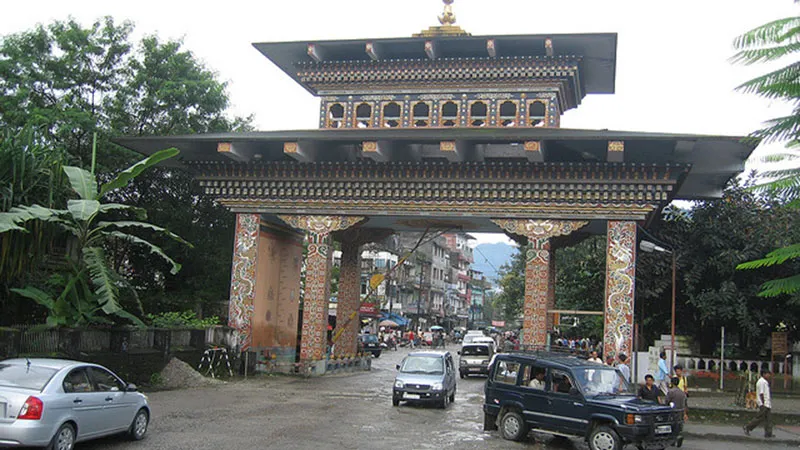-
CENTRES
Progammes & Centres
Location
In the aftermath of Uri terror attack, India has been putting pressure on Pakistan by using multiple levers of power

In search of options against Pakistan after the Uri terror attack, India has been putting pressure on Pakistan by using multiple levers of power. Militarily, the Indian army has conducted "surgical strikes" on terrorist bases along the Line of Control with Pakistan resulting in significant casualties "to the terrorists and those who are trying to support them". Politically, New Delhi is reviewing its stand on the Most Favoured Nation status and Indus Waters Treaty. And diplomatically, it is seeking Pakistan's global and regional isolation.
Towards that end, the already moribund regional organization, the South Asian Association for Regional Cooperation, has come in handy. India decided to play the Saarc card, and with a vengeance. India has said, "In the prevailing circumstances", it is unable to participate in the November Saarc summit in Islamabad. This is an unprecedented move in many respects, but a struggling Saarc has finally found some use for India - to signal its disapproval of Pakistan. India's move has found support in the region with three other members - Bangladesh, Afghanistan and Bhutan - also pulling out of the meet immediately, leading to its suspension for the time being. Sri Lanka and Nepal also joined in rebuking Pakistan.
Pakistan, in any case, has always been paranoid about Saarc and greater regional integration. It has not granted the MFN status to India. Earlier this year, Pakistan had backtracked from its support for the trans-South-Asian road connectivity project after suggesting that it needed more time to consider its implications. And with this, Pakistan managed to scuttle a pact that would have allowed the free movement of passenger and cargo vehicles within the Saarc nations. After Pakistan had refused to sign this pact at the Kathmandu summit of Saarc in November 2014, India, along with Nepal, Bhutan and Bangladesh, had decided to move ahead with the accord. In June 2015, these four states signed a landmark Motor Vehicles Agreement for the regulation of passenger, personnel and cargo vehicular traffic among the four South Asian neighbours in Thimphu, Bhutan. This major initiative is expected to pave the way for a seamless movement of people and goods across their borders for the benefit and integration of the region, thereby galvanizing economic development in South Asia at large. India only has bilateral motor vehicle agreements with Nepal and Bangladesh, but a multilateral pact would go a long way in boosting trade in the region. The agreement opens up the possibility of turning border roads into economic corridors, which could increase inter-regional trade within South Asia by 60 per cent.
A broader Saarc agreement would have allowed the free movement of vehicles of each country - cargo as well as passenger vehicles - in the territory of the other country through an authorized operator. After Pakistan's obstructionist stance could not be cleared, India decided to tap its eastern neighbours and the framework of the new agreement was finalized at the South Asia Subregional Economic Cooperation - another grouping of South Asian countries, which includes India, Bangladesh, Bhutan, the Maldives, Nepal and Sri Lanka. Pakistan is not part of this grouping. SASEC was set up in 2001 to bring together these six countries to promote regional prosperity and boost trade by improving cross-border connectivity.
India is now pursuing a similar framework between India, Myanmar and Thailand in order to get access to the larger Association of Southeast Asian Nations market through seamless passenger and cargo movement. Among other measures is the standard operating procedure India and Bangladesh have signed to operationalize an agreement on coastal shipping last year. The pact is aimed at promoting bilateral trade and bringing down the transportation cost of export-import cargo.
India is also working on operationalizing a 3,200-km road link from Moreh (India) to Mae Sot (Thailand). According to the India-Bangladesh SOP, both countries will have to treat each other's vessels as per international sea transportation norms.
Pakistan's paranoia is also evident in its repeated attempts at denying the use of the land route for trade between Afghanistan and India. This has resulted in growing ill will for Pakistan in Afghanistan even as bilateral Afghan-India relations have continued to grow. Allowing the use of the land route for transit goods between India and Afghanistan would have opened up new possibilities for more extensive contacts in other areas, with the Pakistani transport sector directly benefiting from the transit trade. Every day that ordinary Afghans lose opportunities of easy, direct trade with India, Pakistan generates ever more resentment from them.
With Pakistan persisting in its obstructionist agenda, New Delhi has rightfully been signalling that it would find itself marginalized in the larger South Asian dynamic. Pakistan cannot hold the future of the region hostage to its India paranoia. And with India now deciding to boycott the Saarc summit and other regional states following India's lead, the chickens are finally coming home to roost for Pakistan.
This commentary originally appeared in The Telegraph.
The views expressed above belong to the author(s). ORF research and analyses now available on Telegram! Click here to access our curated content — blogs, longforms and interviews.

Professor Harsh V. Pant is Vice President – Studies and Foreign Policy at Observer Research Foundation, New Delhi. He is a Professor of International Relations ...
Read More +